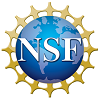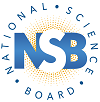References
Allum N, Besley JC, Gomez L, Brunton-Smith I. 2018. Disparities in Science Literacy. Science 360(6391):861–2.
Allum N, Sturgis P, Tabourazi D, Brunton-Smith I. 2008. Science Knowledge and Attitudes across Cultures: A Meta-Analysis. Public Understanding of Science 17(1):35–54.
Bann CM, Schwerin MJ. 2004. Public Knowledge and Attitudes Scale Construction: Development of Short Forms. National Science Foundation, Division of Science Resources Statistics. Research Triangle Park, NC.
Besley JC. 2015. Predictors of Perceptions of Scientists: Comparing 2001 and 2012. Bulletin of Science, Technology & Society 35(1–2):3–15.
Besley JC. 2018. The National Science Foundation’s Science and Technology Survey and Support for Science Funding, 2006–2014. Public Understanding of Science 27(1):94–109.
Binder AR, Cacciatore MA, Scheufele DA, Shaw BR, Corley EA. 2012. Measuring Risk/Benefit Perceptions of Emerging Technologies and Their Potential Impact on Communication of Public Opinion toward Science. Public Understanding of Science 21(7):830–47.
China Research Institute for Science Popularization (CRISP). 2018. Main Findings from the Survey of Public Understanding of Science in China, 2018. Available at http://www.crsp.org.cn/pdf/csi_2018.pdf. Accessed 24 February 2020.
Fishbein M, Ajzen I. 2010. Predicting and Changing Behavior: The Reasoned Action Approach. NY: Psychology Press.
Fiske S, Dupree ST. 2014. Gaining Trust as Well as Respect in Communicating to Motivated Audiences about Science Topics. Proceedings of the National Academy of Sciences 111(Supplement 4):13593–7.
Funk C, Goo SK. 2015. A Look at What the Public Knows and Does Not Know about Science. Science & Society. Pew Research Center. Available at http://www.pewinternet.org/2015/09/10/what-the-public-knows-and-does-not-know-about-science/. Accessed 11 October 2019.
Funk C, Gottfried J, Mitchell A. 2017. Science News and Information Today. Journalism & Media. Available at https://www.journalism.org/2017/09/20/science-news-and-information-today/. Accessed 24 February 2020.
Funk C, Hefferon M, Kennedy B, Johnson C. 2019. Trust and Mistrust in Americans’ Views of Scientific Experts. Science & Society. Pew Research Center. Available at https://www.pewresearch.org/science/2019/08/02/trust-and-mistrust-in-americans-views-of-scientific-experts/. Accessed 13 August 2019.
Funk C, Kennedy B. 2019. Public Confidence in Scientists Has Remained Stable for Decades. Fact Tank: News in the Numbers. Pew Research Center. Available at https://www.pewresearch.org/fact-tank/2019/03/22/public-confidence-in-scientists-has-remained-stable-for-decades/. Accessed 24 February 2020.
Funk C, Kennedy B, Hefferon M. 2018. Public Perspectives on Food Risk. Science & Society. Pew Research Center. Available at https://www.pewresearch.org/science/2018/11/19/public-perspectives-on-food-risks/. Accessed 24 February 2020.
Funk C, Kennedy B, Hefferon M, Strauss M. 2018. Majorities See Government Efforts to Protect Environment as Insufficient. Science & Society. Pew Research Center. Available at https://www.pewresearch.org/science/2018/05/14/majorities-see-government-efforts-to-protect-the-environment-as-insufficient/. Accessed 24 February 2020.
Funk C, Strauss M. 2018. Majority of Americans Believe It Is Essential That the U.S. Remain a Global Leader in Space. Science & Society. Pew Research Center. Available at https://www.pewresearch.org/science/2018/06/06/majority-of-americans-believe-it-is-essential-that-the-u-s-remain-a-global-leader-in-space/. Accessed 24 February 2020.
Gallup. 2019a. Energy. In Depth: Topics A to Z. Available at https://news.gallup.com/poll/2167/energy.aspx. Accessed 11 October 2019.
Gallup. 2019b. Environment. In Depth: Topics A to Z. Available at https://news.gallup.com/poll/1615/environment.aspx. Accessed 11 October 2019.
Intergovernmental Panel on Climate Change (IPCC). 2018. Global Warming of 1.5°C. An IPCC Special Report on the impacts of global warming of 1.5°C above pre-industrial levels and related global greenhouse gas emission pathways, in the context of strengthening the global response to the threat of climate change, sustainable development, and efforts to eradicate poverty. Geneva, Switzerland. Available at https://www.ipcc.ch/sr15/. Accessed 20 April 2020.
Kahan DM. 2017. ‘Ordinary Science Intelligence’: A Science-Comprehension Measure for Study of Risk and Science Communication, with Notes on Evolution and Climate Change. Journal of Risk Research 20(8):995–1016.
Kennedy B, Hefferon M. 2019. What Americans Know about Science. Science & Society. Pew Research Center. Available at https://www.pewresearch.org/science/2019/03/28/what-americans-know-about-science/. Accessed 24 February 2020.
Leiserowitz A, Maibach E, Rosenthal S, Kotcher J, Bergquist P, Ballew M, Goldberg M, Gustafson A. 2019. Climate Change in the American Mind: November 2019. New Haven, CT: Yale Program on Climate Change Communication. Available at https://climatecommunication.yale.edu/wp-content/uploads/2019/12/Climate_Change_American_Mind_November_2019b.pdf. Accessed 13 January 2020.
Losh SC. 2012. Stereotypes about Scientists over Time among U.S. Adults: 1983 and 2001. Public Understanding of Science 19(3):372–82.
Lyons L. 2005. Paranormal Beliefs Come (Super)Naturally to Some. Gallup. Available at http://www.gallup.com/poll/19558/Paranormal-Beliefs-Come-SuperNaturally-Some.aspx?s. Accessed 11 October 2019.
Maitland A, Tourangeau R, Sun H. 2018. Separating Science Knowledge from Religious Belief: Two Approaches for Reducing the Effect of Identity on Survey Responses. Public Opinion Quarterly 82(1):34–62.
Miller JD, Pardo R, Niwa F. 1997. Public Perceptions of Science and Technology: A Comparative Study of the European Union, the United States, Japan, and Canada. Bilbao, Spain: Fundación BBVA.
Mitchell A, Gottfried J, Stocking G, Walker M, Fedeli S. 2019. Many Americans Say Made-Up News Is a Critical Problem That Needs to Be Fixed. Journalism & Media. Pew Research Center. Available at https://www.journalism.org/2019/06/05/many-americans-say-made-up-news-is-a-critical-problem-that-needs-to-be-fixed/. Accessed 28 August 2019.
Muñoz A, Moreno C, Luján JL. 2012. Who Is Willing to Pay for Science? On the Relationship between Public Perception of Science and the Attitude to Public Funding of Science. Public Understanding of Science 21(2):242–53.
National Research Council. 2010. Advancing the Science of Climate Change. Washington, DC: National Academies Press. Available at https://www.nap.edu/catalog/12782/advancing-the-science-of-climate-change. Accessed 24 February 2020.
National Science Board (NSB), National Science Foundation. 2010. Public Attitudes and Understanding. In Science and Engineering Indicators 2010 (Indicators 2010). NSB 10-01. Arlington, VA. Available at https://www.nsf.gov/statistics/seind10/.
National Science Board (NSB), National Science Foundation. 2014. Science and Engineering Indicators 2014 (Indicators 2014). NSB 14-01. Arlington, VA. Available at https://www.nsf.gov/statistics/seind14/.
National Science Board (NSB), National Science Foundation. 2018. Science and Engineering Indicators 2018 (Indicators 2018). NSB-2018-01. Alexandria, VA. Available at https://www.nsf.gov/statistics/2018/nsb20181/.
Pew Research Center. 2009. Many Americans Mix Multiple Faiths. Religion & Public Life. Available at https://www.pewforum.org/2009/12/09/many-americans-mix-multiple-faiths/. Accessed 17 May 2019.
Plutzer E. 2013. The Racial Gap in Confidence in Science: Explanations and Implications. Bulletin of Science, Technology & Society 33(5–6):146–57.
Poushter J, Huang C. 2019. Climate Change Still Seen as the Top Global Threat, but Cyberattacks a Rising Concern. Global Attitudes & Trends. Pew Research Center. Available at https://www.pewglobal.org/2019/02/10/climate-change-still-seen-as-the-top-global-threat-but-cyberattacks-a-rising-concern/. Accessed 24 February 2020.
Reinhart RJ. 2019. 40 Years after Three Mile Island, Americans Split on Nuclear Power. Gallup: Politics. Available at https://news.gallup.com/poll/248048/years-three-mile-island-americans-split-nuclear-power.aspx. Accessed 24 February 2020.
Royal Society, U.S. National Academy of Sciences. 2014. Climate Change: Evidence & Causes. Available at https://nas-sites.org/americasclimatechoices/more-resources-on-climate-change/climate-change-evidence-and-causes/. Accessed 24 February 2020.
Schuldt JP, Konrath N, Schwarz N. 2011. “Global Warming” or “Climate Change”? Whether the Planet Is Warming Depends on the Question Wording. Public Opinion Quarterly 75(1):115–24.
Shearer E, Gottfried J. 2017. News Use across Social Media Platforms 2017. Journalism & Media. Pew Research Center. Available at https://www.journalism.org/2017/09/07/news-use-across-social-media-platforms-2017/. Accessed 28 August 2019.
SRI International, special tabulations (2020) from the General Social Survey.
U.S. National Academies of Sciences, Engineering, and Medicine (NASEM). 2016a. Genetically Engineered Crops: Experiences and Prospects. Washington, DC: National Academies Press.
U.S. National Academies of Sciences, Engineering, and Medicine (NASEM). 2016b. Science Literacy: Concepts, Contexts, and Consequences. Washington, DC: National Academies Press.
Wellcome Trust. 2019. Wellcome Global Monitor: How Does the World Feel about Science and Health? 2018. Available at https://wellcome.ac.uk/sites/default/files/wellcome-global-monitor-2018.pdf. Accessed 13 August 2019.
Wissenschaft im Dialog. 2018. Science Barometer 2018. Available at https://www.wissenschaft-im-dialog.de/en/our-projects/science-barometer/science-barometer-2018/. Accessed 17 May 2019.
 An official website of the United States government
An official website of the United States government
